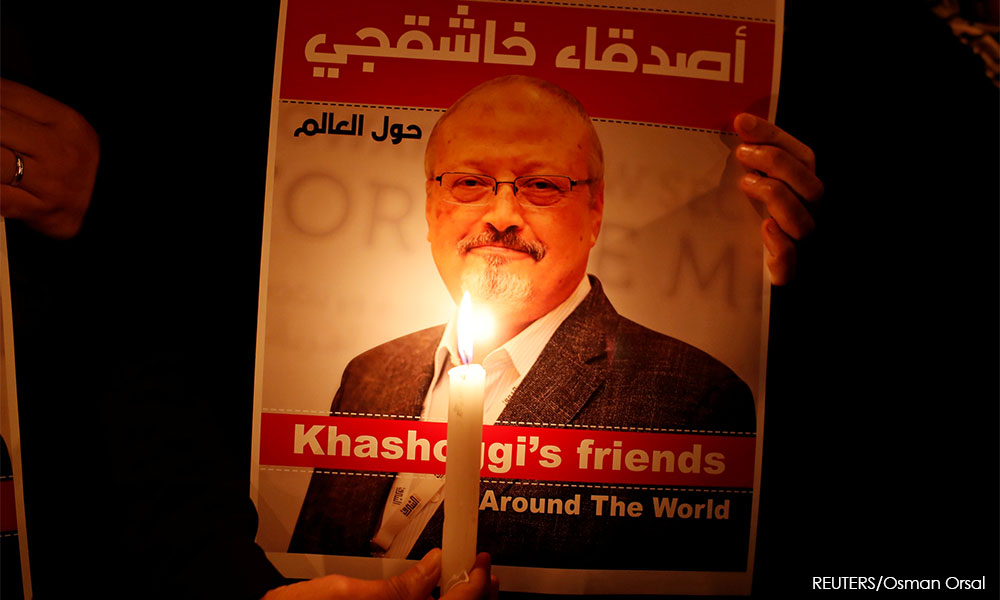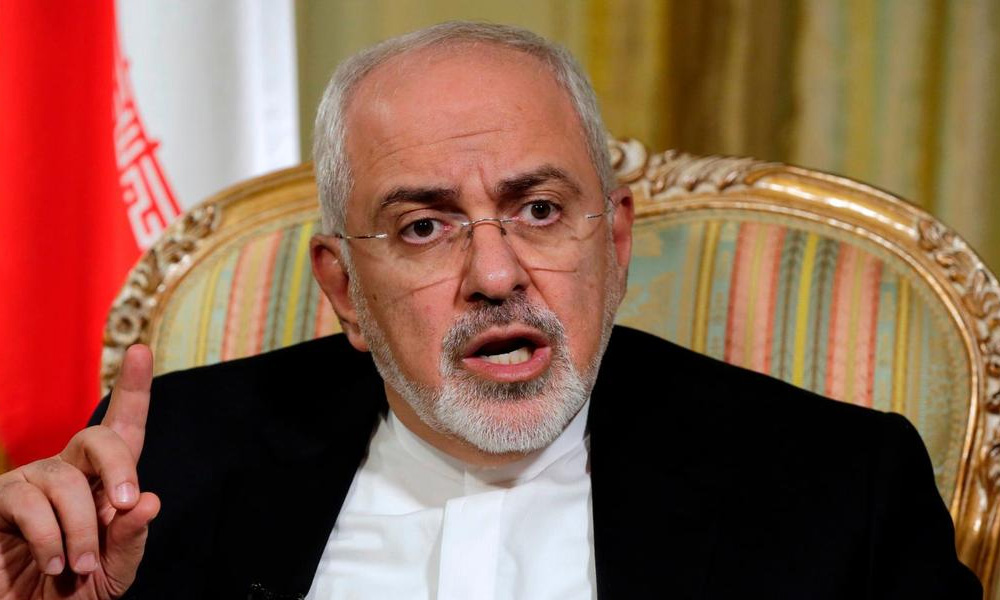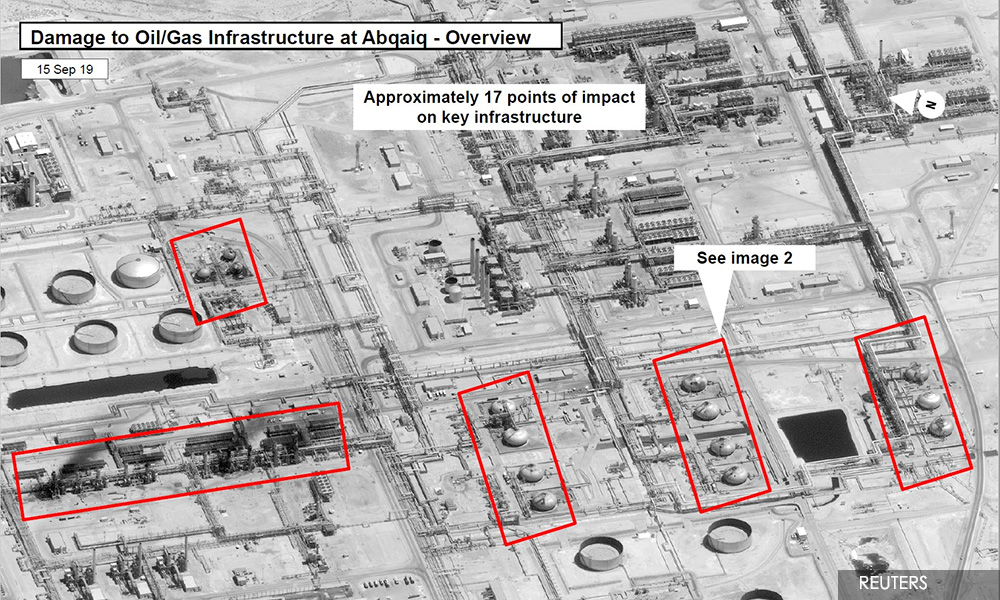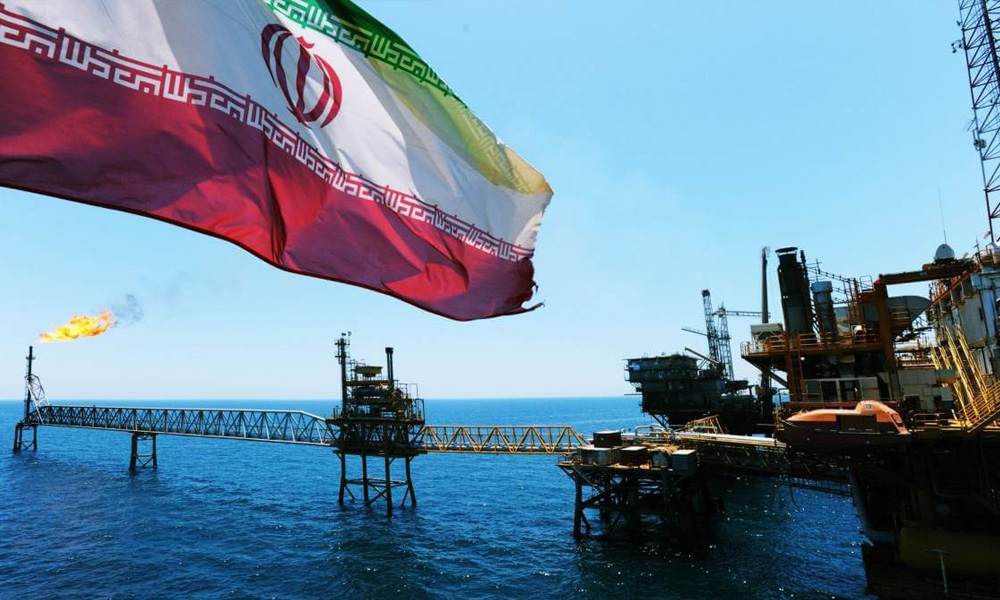Iran will pursue any aggressor, even it carries out a limited attack, and seek to destroy it, the head of the elite Revolutionary Guards said on Saturday, after attacks on Saudi oil sites which Riyadh and US officials blamed on Tehran.
“Be careful, a limited aggression will not remain limited. We will pursue any aggressor,” the head of the Revolutionary Guards, major-general Hossein Salami, said in remarks broadcast on state TV. “We are after punishment and we will continue until the full destruction of any aggressor.”
US President Donald Trump on Friday approved sending American troops to bolster Saudi Arabia’s air and missile defences after the Sept 14 attacks.
Iran denies involvement in the attack, which was claimed by Yemen’s Houthi movement, a group aligned with Iran and fighting a Saudi-led alliance in Yemen’s civil war.
Trump’s move drew fire in Washington on Saturday from US House of Representatives Speaker Nancy Pelosi, who called it his “latest outrageous attempt” to circumvent Congress.
“These unacceptable actions are cause for alarm,” Pelosi said in a statement accusing Trump of turning “a blind eye” to Saudi violence against innocent Yemenis, human rights abuses and the murder of journalist Jamal Khashoggi (below).

“The United States cannot enable more brutality and bloodshed,” she added. “Congress will do our job to uphold the Constitution, defend our national security and protect the American people.”
Meanwhile, Amirali Hajizadeh, who heads the Revolutionary Guards’ aerospace branch, said any attacks on Iran would receive “a crushing response”, the official news agency Irna reported.
Hajizadeh was speaking at a public exposition called 'Hunting Vultures', where remains of drones which were downed in Iran or crashed there were displayed, along with the Iranian air defence system which shot down a US military drone in June.
The exposition is part of annual events commemorating the start of the 1980-88 war with Iraq, which also includes air and naval displays in the Gulf and military parades on Sunday.

Meanwhile, Iran’s Foreign Minister Mohammad Javad Zarif (photo) denounced renewed US sanctions against its central bank following the Saudi attacks as an attempt to deny ordinary Iranians access to food and medicine, and said the move was a sign of US desperation.
The US on Friday imposed more sanctions, targetting the Central Bank of Iran, which was already under US sanctions, the National Development Fund of Iran - the country’s sovereign wealth fund - and an Iranian company that US officials say is used to conceal financial transfers for Iranian military purchases.
“This is a sign of US desperation... When they repeatedly sanction the same institution, this means their attempt at bringing the Iranian nation to its knees under ‘maximum pressure’ has failed,” Zarif told reporters in remarks shown on state television.
“But this is dangerous and unacceptable as an attempt at blocking... the Iranian people’s access to food and medicine,” he said, speaking after arriving in New York for the annual UN General Assembly next week.
Separately, Foreign Ministry spokesman Abbas Mousavi rejected what he called “unreal and repetitious accusations by certain Saudi officials” about the attacks, state media said.
A senior Saudi official said earlier that Riyadh would wait for the results of a probe before responding to the attacks on its oil facilities, for which it believes Iran is responsible.

Zarif said he would meet on Wednesday foreign ministers of the remaining signatories to the 2015 nuclear accord, which was agreed with Britain, France, Germany, China and Russia, as well as the US.
“As we have said before, the United States can only attend if it returns to the (nuclear accord)... and ends its economic war against Iran,” Zarif said.
Cyber-attack
The US withdrew from the accord last year and re-imposed unilateral sanctions on Iran.
After reports on social media of a cyber-attack on some petrochemical and other companies in Iran, a state body in charge of cyber security denied there had been a “successful” attack.

“Based on our observations... there has not been a successful cyber-attack on oil facilities and other critical infrastructure,” said an official statement carried by Irna.
NetBlocks, an organisation that monitors internet connectivity, earlier reported “intermittent disruptions” to some internet services in Iran starting on Friday evening.
The group said the impact was limited, affecting only specific providers, and the cause was unclear. “Data are consistent with a cyber-attack or unplanned technical incident on affected networks, as opposed to a purposeful withdrawal or shutdown incident,” it said in a tweet.
NetBlocks director Alp Toker said they saw four Iranian networks falling offline over a three-hour period on Friday evening. This began when the first reports emerged and ended shortly afterwards. The networks have been stable since.
- Reuters

